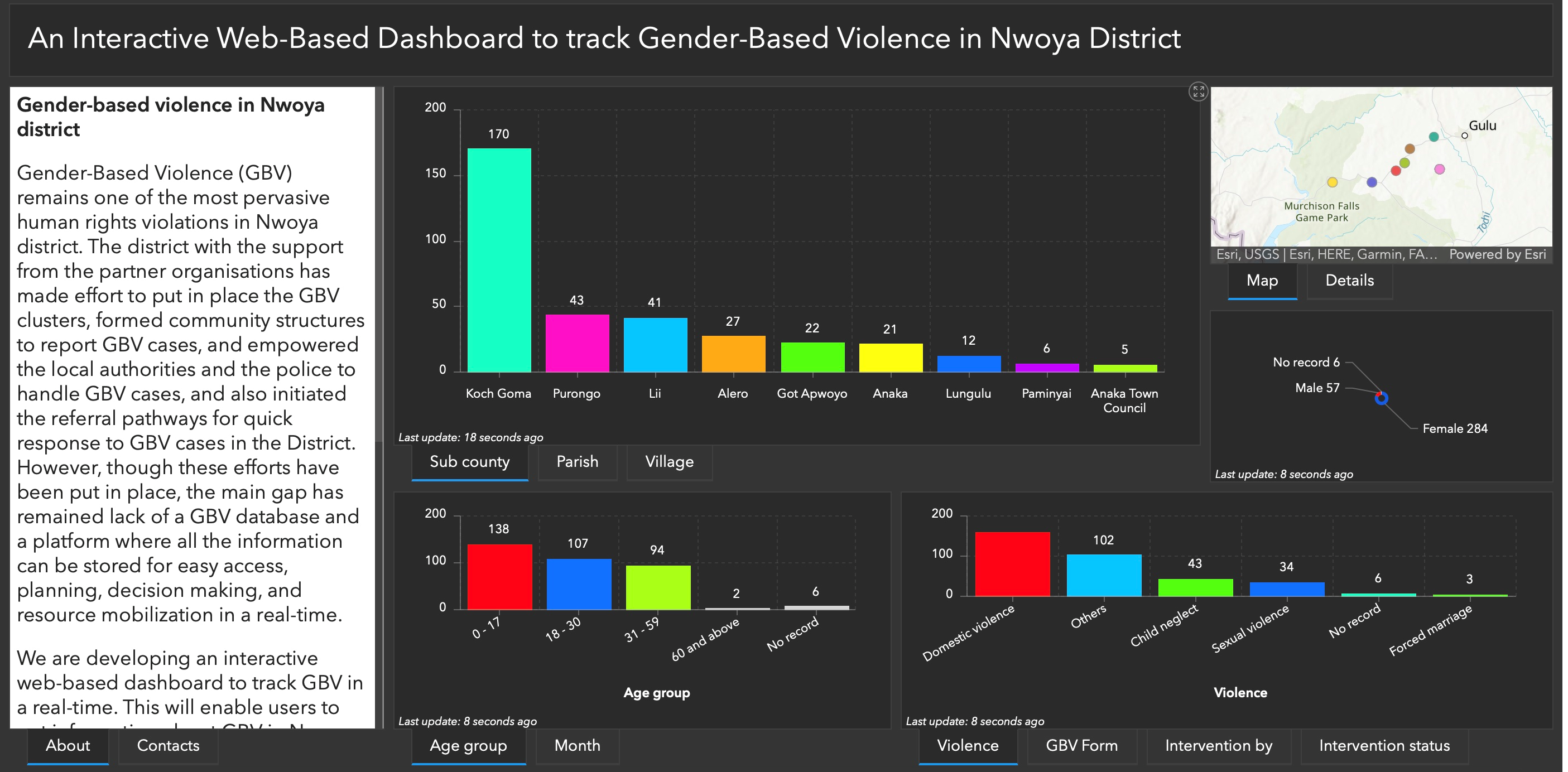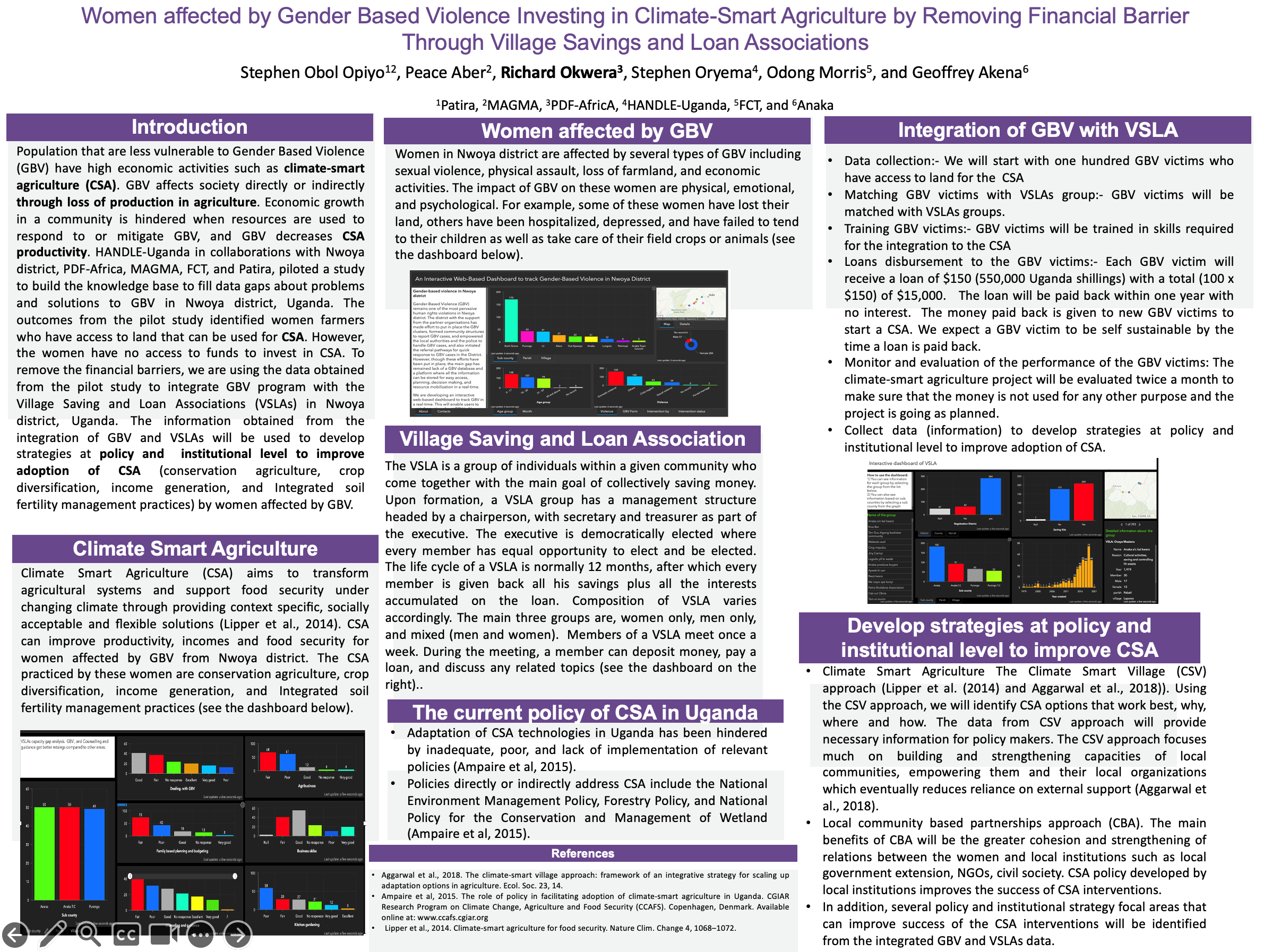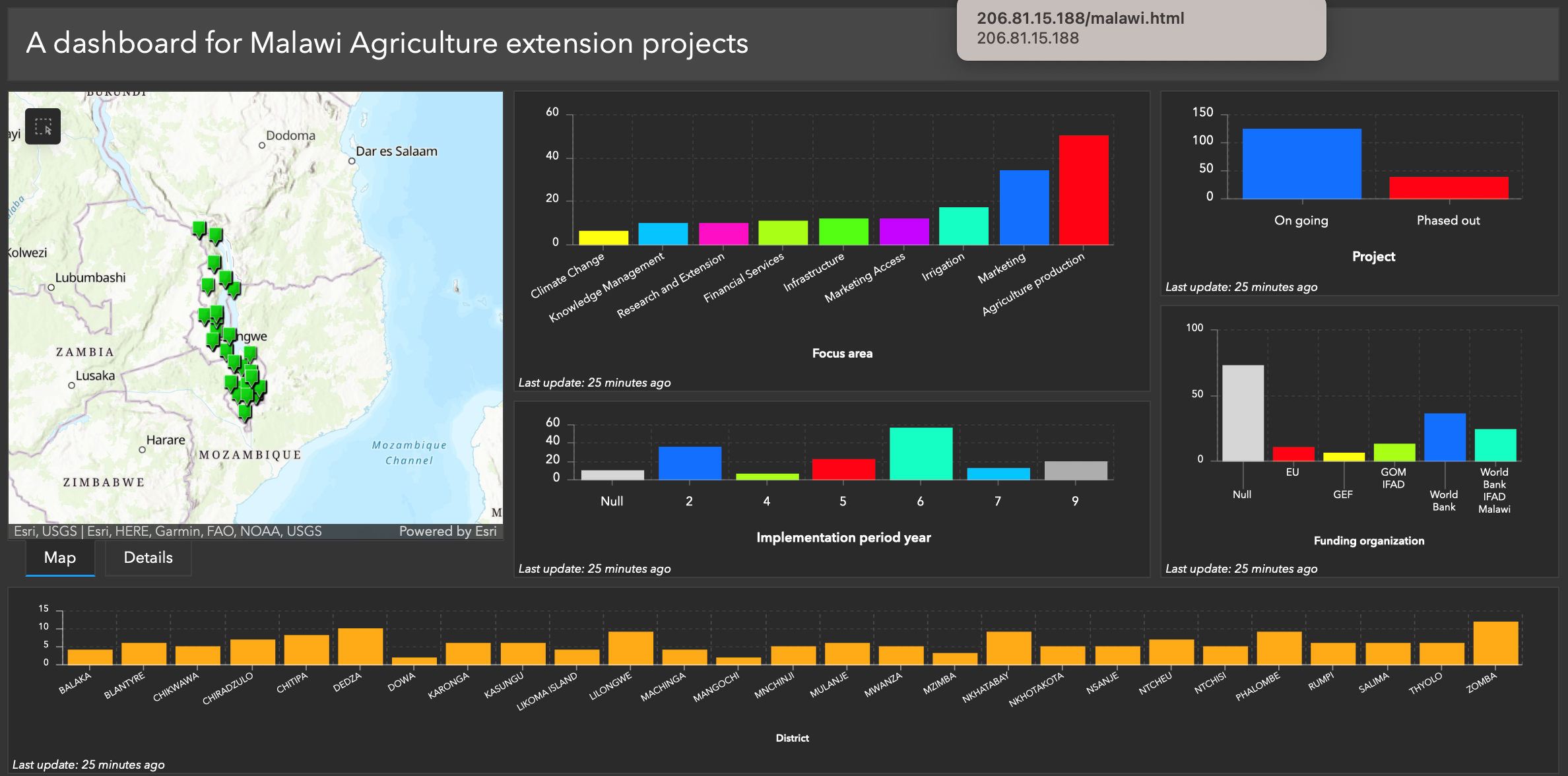Patira collaborates with various entities, including the government, public, and NGOs. Notably, our current engagement with the Nwoya District local government involves the development of an interactive web-based dashboard designed to monitor Gender-Based Violence (GBV) in real-time. This dynamic platform integrates interactive maps, graphs, and applications to provide users with up-to-date information on GBV occurrences within the district. Collaborative efforts, supported by partner organizations, have been implemented, such as establishing GBV clusters, fostering community reporting structures, empowering local authorities and law enforcement, and creating referral pathways for prompt responses to GBV cases. However, the existing gap remains rooted in the absence of a centralized GBV database and platform, hindering efficient data storage, accessibility, and real-time utilization for planning, decision-making, and resource mobilization. The establishment of a comprehensive GBV database is crucial for enhancing the district’s capability to effectively combat GBV and streamlining initiatives for sustainable change. You can access the dashboard at:
http://206.81.15.188/motor.html
1) Interactive GIS dashboard for tracking GBV in Nwoya district, Uganda

2) Empowering Women in Climate-Smart Agriculture: Breaking Financial Barriers via Village Savings
Population that are less vulnerable to Gender Based Violence (GBV) have high economic activities such as climate-smart agriculture (CSA). GBV affects society directly or indirectly through loss of production in agriculture. Economic growth in a community is hindered when resources are used to respond to or mitigate GBV, and GBV decreases CSA productivity. HANDLE-Uganda in collaborations with Nwoya district, PDF-Africa, MAGMA, FCT, and Patira, piloted a study to build the knowledge base to fill data gaps about problems and solutions to GBV in Nwoya district, Uganda. The outcomes from the pilot study identified women farmers who have access to land that can be used for CSA. However, the women have no access to funds to invest in climate-smart agriculture. To remove the financial barriers, we are using the data obtained from the pilot study to integrate GBV program with the Village Saving and Loan Associations (VSLAs) in Nwoya district, Uganda. The information obtained from the integration of GBV and VSLAs will be used to develop strategies at policy and institutional level to improve adoption of CSA (conservation agriculture, crop diversification, income generation, and Integrated soil fertility management practices) by women affected by GBV.

3) Malawi Agriculture Extension Project monitoring through interactive GIS dashboard
We develop a comprehensive dashboard for the Malawi Agriculture Extension Project incorporating critical information to inform a funding organization effectively. This dashboard distinctly outlines the project’s focus areas, on ongoing and phased projects, offering insights into the project’s adaptability over time. The implementing period clearly defined, ensuring that project progress can be tracked, and resources managed efficiently. The involvement of funding organizations transparently presented, enabling them to assess their contributions and make informed investment decisions for future initiatives. Furthermore, the dashboard highlighted the specific districts where the project is active or phased out, allowing for an assessment of regional impact and better targeting of future funding based on regional needs. To access the dashboard visit: http://206.81.15.188/malawi.html
Advantages of the dashboard to the Funding Organization:
Transparency and Accountability: The dashboard provides a transparent view of how the funds are being used, enabling the funding organization to monitor the progress and ensure that the allocated budget is utilized effectively and efficiently.
Impact Assessment: The information on the dashboard allows the funding organization to assess the impact of their investment in different regions and track the development in each district, facilitating informed decision-making for future funding strategies.
Resource Allocation: By having a clear overview of ongoing and upcoming projects, the funding organization can strategically allocate resources to address specific agricultural needs and challenges in different districts, optimizing the impact of their financial support.
Engagement and Collaboration: The dashboard can foster better communication and collaboration between the funding organization and project implementers, enabling effective feedback, discussions, and adjustments to ensure the successful execution of the projects.
Public Relations and Reporting: Utilizing the dashboard for public relations and reporting purposes can enhance the image of the funding organization, showcasing its commitment to the development of the agricultural sector in Malawi and contributing to sustainable growth and food security in the region.

4) Guidelines for Capturing Information and Knowledge Product from CCARDESA
In the ever-evolving landscape of agricultural development and capacity building, the availability of accurate and accessible information and knowledge products is crucial. The Comprehensive Agricultural Research, Development, and Extension in Southern Africa (CCARDESA) has recognized this need and has taken a significant step by releasing its latest document, the “Guidelines for Capturing Information and Knowledge Products for CCARDESA.” This comprehensive guide, authored by CCARDESA with contributions from Stephen Opiyo and Fally Masambuka, has been published with support from the European Union.
Aim and Scope
The main aim of this document is to establish a clear and structured framework for capturing information and knowledge products within the CCARDESA network. By providing guidelines for the creation, organization, and dissemination of these products, CCARDESA aims to foster greater collaboration, learning, and innovation across its diverse range of stakeholders.
More information about the project can be found here: https://www.ccardesa.org/knowledge-products/guidelines-capturing-information-and-knowledge-products-ccardesa
5) Data Management and Analytics of tax data from Uganda Revenue Authority
In my role at The Uganda Revenue Authority, Patira played a pivotal role in enhancing data management practices and fostering a culture of effective knowledge sharing. This involved conducting thorough interviews with key stakeholders to assess their understanding and utilization of data for decision-making and compliance interventions. Additionally, we identified existing gaps in data management practices and proposed solutions, including conducting a comprehensive data census to evaluate data quality and relevance for revenue mobilization, reviewing and recommending advanced data analysis tools, and streamlining information structures for improved integration and alignment.
Moreover, we developed a comprehensive roadmap and guidelines for the implementation of a data-driven culture, providing insightful recommendations on the incorporation of artificial intelligence and machine learning. Furthermore, we conducted a thorough assessment of staff proficiency in data analysis and provided targeted training in knowledge management practices, ensuring the team was equipped with the necessary skills to enhance domestic revenue mobilization through improved tax compliance strategies and efficient data analytics.



